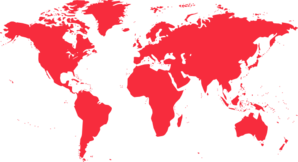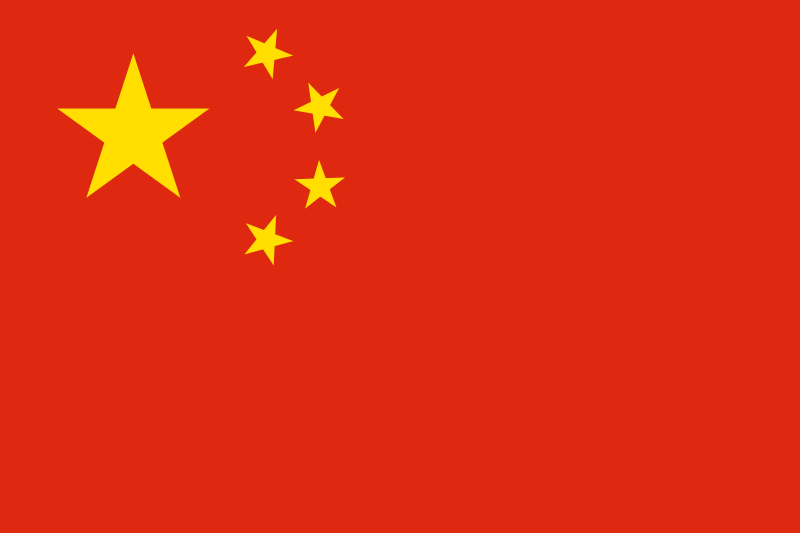Fluval Spain S.L
Key Points
In this case, a firm located in Northern Spain attempted to export controlled dual – use goods, specifically alloy valves, to Iran without a licence, using the UAE as transit country;
Spanish Authorities undertook a successful operation, seizing the sensitive material during transit and, at the same time, confiscating documents and electronic material which tied the shipment to Iran;
Export controls worked effectively based on sound intelligence, information sharing between the European and Spanish authorities, and good knowledge of the EU and UN elaborated lists on restrictive measures against Iran;
If convicted, the Spanish firm could have its export licence suspended or revoked and it could face fines.
Background
Fluval Spain S.L. is part of Valvospain, a European group of valve manufacturers. The other two members of the group are: Lazaro Ituarte Valves S.A. and MTS Valves and Technology S.L.
Fluval Spain S.L. is the Spanish branch of Fluval U.K. Ltd. The firm is located in Amurrio, Vizcaya County, in the North of Spain (Basque Country). In March 2012, Spanish authorities initiated an operation under the name of ‘Operation Alfa’ (Operación Alfa) investigating Fluval Spain S.L.
Operation
On the 11th January 2013 the General Commissary of Intelligence of the National Police Force intercepted a trailer truck at a highway tollbooth in the northern town of Durango. After the investigation, two individuals were arrested and the cargo seized. The vehicle contained 44 valves. According to the official press release by the Spanish Ministry of the Interior:
The merchandise consisted of valves of material know as Inconel 625, material which contains an alloy of more than 25% nickel and 20% chromium in weight, which gives them high resistance to corrosion and makes them particularly apt for use in the nuclear industry.[i]
Inconel valves can be controlled by the Nuclear Suppliers Group, because of potential use in gas handling in an enrichment cascade and by the Australia Group for potential use in handling chemical weapon substances and precursors, both of which environments can be corrosive to more common materials. Nonetheless, there are legitimate uses for such valves in the oil and gas industry.
As publically available information does not provide technical specifications for the valves, such as whether they had intended to have bellows-seals fitted or even the sizes and types of the valves, it is not possible to reach conclusions about the true end uses of the valves.
The targeted firm’s headquarters were in the Basque Country but it used shadow companies in the United Arabian Emirates (UAE) in order to divert the deliveries, channeling cash through banks in third countries. It also maintained business relations with Iranian entities including those designated on EU control lists owing to their links with Iran’s nuclear programme.[ii]
The operation was carried out with the overisght of the Court of Instruction No. 5 of Bilbao, at whose disposal the seized goods have since been placed. In the course of the operation, it transpired that one of the accused, who was responsible for the sales in the UAE and Iran, was connected to the company that made the transactions, located in the industrial area of the town Amurrio Alava in Spain. The operation also revelaed the registration plates of the trailer truck which was intercepted, and from which a total of 44 valves with a variety of uses, were confiscated. Spanish police also got hold of binding hardware for the valves, documentation relating to exports to Iran, associated bank accounts, and various incriminating electronic material.[iii]
The material
Alloy valves have been categorised as dual-use and ‘sensitive’ goods. Both the United States (US) and the European Union (EU) have included them in their list of items which are not to be exported to Iran. They have high resistance to corrosion, as well as erosion, which means that they can sustain high temperatures and possible deterioration when exposed to radioactive material.
Assessment
This case showcases the effective use of export controls, when implemented in conjunction with appropriate intelligence. The press release by the Spanish authorities clearly indicates that the operation was intelligence driven. In past cases of proliferation attempts regarding Iran, US intelligence has informed the states concerned of suspicious transactions undertaken by specific firms. In the present case, no information is yet available on what directed attention towards this firm.
What is clear is that the Spanish authorities scrutinised the activities of the firm for nine months, before undertaking the operation. Preceding the operation, the authorities built up a strong case, discovering: bank accounts through which transactions to Iran were made; the nature of the shipment; and the role of the shadow companies in the UAE. The seizure of the material took place when all of the documentation linking the firm to Iran was inside the transporting vehicle.
The firm was part of a conglomerate called ‘Valvospain’. Another firm in the same group, MTS Valves and Technology S.L., was involved traded with Pars Trash Company in 2003, which is a UN designated entity.[iv] The UN has identified the firm as being part of the Iranian centrifuge programme. However, at the time at which the contract was signed with MTS Valves, the UN and EU sanctions were not in place. The UN has identified the firm as being part of the Iranian centrifuge programme. However, at the time at which the contract was signed with MTS Valves, the UN and EU sanctions were not in place.
A third member of Valvospain, Lazaro Ituarte Valves S.A., had signed a $2.5 million project with the Iranian National Petrochemical Company, to which it will send materials for the Technip-Kharg Ethylene Plant in Kharg Island. If undertaken, such a contract could be in breach of EU sanctions, even if the goods are not subject to control. Again though, when the contract was signed, there was no violation of the sanctions.
Conclusions
Export controls worked effectively in this case because Spanish authorities noticed that the Iranian firm who was referred to as end-user of the valves was designated by the UN.[v] The name of the Iranian firm has not yet been published. In addition, the state has incorporated EU sanctions on Iran into its own domestic legislation. Without these two elements: the information sharing between the EU and Spain, and the strong Euro-Spanish export control legislation, the operation could never have been realised. Finally, Spanish law administers penalties for exporting dual-use items without a licence. Unauthorised exports of these items can result in a prison sentence or a fine up to three to four times the value of the goods involved in the transaction. Moreover, export authorisations can be revoked or suspended if firms are convicted.[vi] However, it is still not clear whether the violation of the sanctions regime will lead to further penalies. [vi] However, it is still not clear whether the violation of the sanctions regime will lead to further penalies. The name of the Iranian firm has not yet been published. In addition, the state has incorporated EU sanctions on Iran into its own domestic legislation. Without these two elements: the information sharing between the EU and Spain, and the strong Euro-Spanish export control legislation, the operation could never have been realised. Finally, Spanish law administers penalties for exporting dual-use items without a licence. Unauthorised exports of these items can result in a prison sentence or a fine up to three to four times the value of the goods involved in the transaction. Moreover, export authorisations can be revoked or suspended if firms are convicted. However, it is still not clear whether the violation of the sanctions regime will lead to further penalies.
[i]Gobierno de España, Ministerio del Interior, ‘La Comisaría General de Información detiene a dos personas y desarticula una red de tráfico de material destinado al desarrollo del Programa Nuclear Iraní’, , accessed 14th January 2013
[ii]Gobierno de España, Ministerio del Interior, Cuerpo Nacional del Policía, ‘La Comisaría General de Información detiene a dos personas y desarticula una red de tráfico de material destinado al desarrollo del Programa Nuclear Iraní’, https://www.policia.es/prensa/20130111_2.html, accessed 14th January 2013
[iii] Ibid.
[iv] SECURITY COUNCIL COMMITTEE ESTABLISHED PURSUANT TO RESOLUTION 1737 (2006), ‘INDIVIDUALS AND ENTITIES DESIGNATED AS SUBJECT TO THE TRAVEL BAN AND ASSETS FREEZE PURSUANT TO RESOLUTIONS 1737 (2006), 1747 (2007), 1803 (2008), AND 1929 (2010) AND TO THE COMMITTEE DECISIONS OF 18 APRIL 2012 AND 20 DECEMBER 2012’, http://www.un.org/sc/committees/1737/pdf/1737ConsolidatedList.pdf, accessed 15th January 2013
[v]Gobierno de España, Ministerio del Interior, Cuerpo Nacional del Policía, ‘La Comisaría General de Información detiene a dos personas y desarticula una red de tráfico de material destinado al desarrollo del Programa Nuclear Iraní’, https://www.policia.es/prensa/20130111_2.html, accessed 15th January 2013
[vi] Spanish Ministry of Interior, ‘The Spanish Control System on Foreign Trade in Defence and Dual-Use Material’, http://exportcontrol.org/library/conferences/2516/01_Spanish_Export_Control_System--ATERO.pdf, p. 13, accessed 15th January 2013




